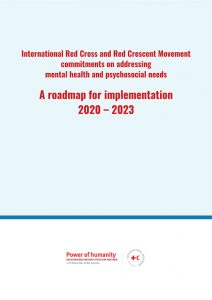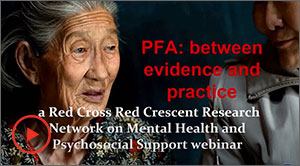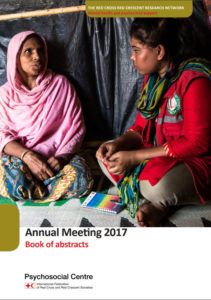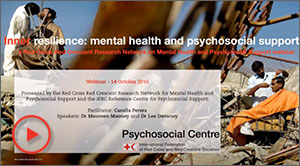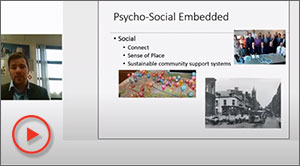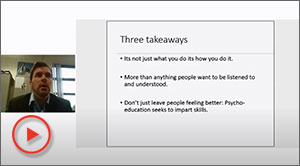The Red Cross Red Crescent Research Network was established in June 2016 with the vision to provide effective humanitarian action through a strengthened evidence-base in the Red Cross Red Crescent Movement for MHPSS for beneficiaries, volunteers and staff.
The Research Network is a space for collaboration and shared learning that brings together MHPSS researchers and practitioners affiliated with the Red Cross Red Crescent Movement. Hosted by the IFRC Reference Centre for Psychosocial Support and co-led by the British Red Cross, the Research Network:
- Releases quarterly newsletters highlighting important developments in global mental health research, events and funding opportunities
- Hosts webinars that showcase best-practice and highlight lessons learned by those conducting research and evaluating programming
- Organises biennial meetings where researchers and practitioners can meet, present their research and evaluations, and build new partnerships
The Research Network is seeking to connect with National Societies and other stakeholders who are interested in conducting research and who would like to explore potential for research partnerships on mental health and psychosocial support in humanitarian settings.
If interested in joining The Research Network, kindly register here: https://survey.rodekors.dk/LinkCollector?key=HGQ5J513J2CK

